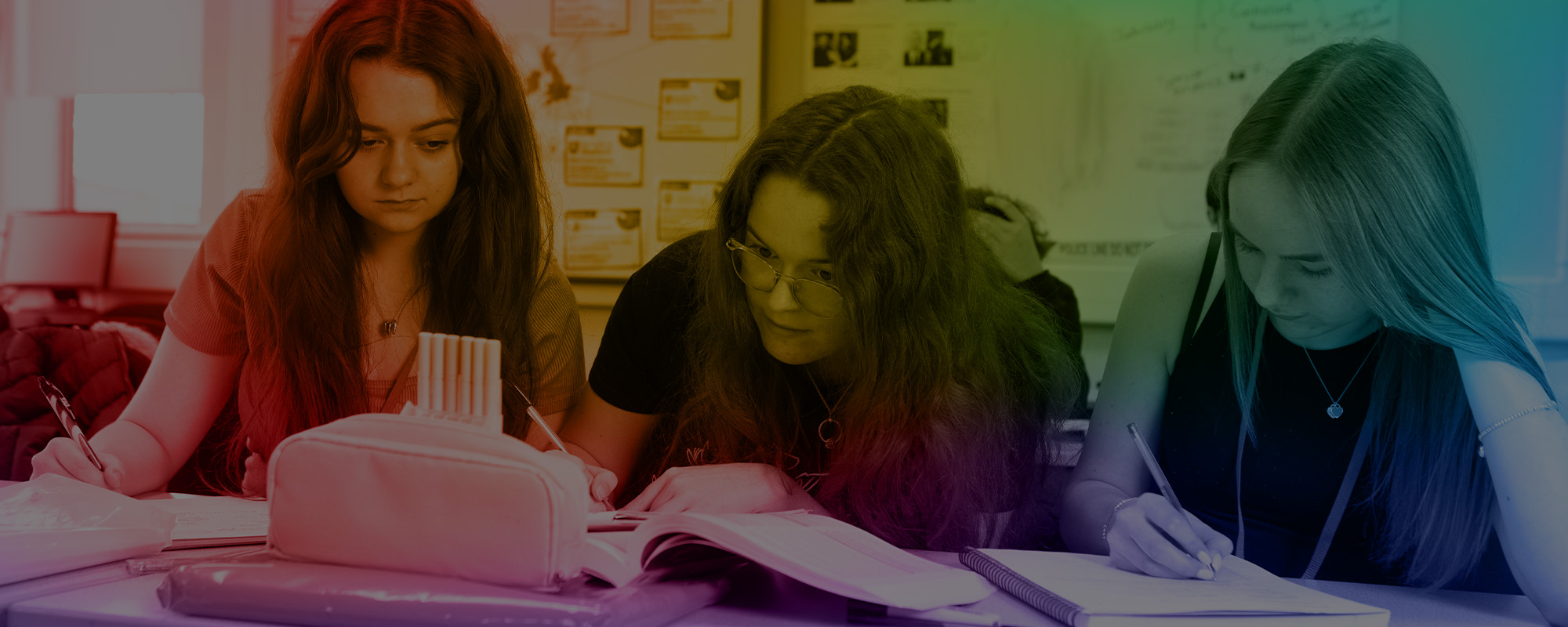English & Humanities courses explore the social and cultural concerns of humans, encompassing religion, arts, language, gender, history and politics. They are considered ‘facilitating subjects’ and are highly regarded by both universities and employers due to the research, academic writing, problem-solving and critical thinking skills that they typically involve. These subjects also encourage students to demonstrate high levels of writing and reading comprehension skills which are sought after by higher education institutions and employers.
In 2024, the Sixth Form achieved a 99.5% pass rate. History, Geography, English Literature and Language secured 100%. Our Sixth Form Centre has a library and plenty of study space for students to work independently in. We have state-of-the-art facilities including our modern Science labs. Our staff are highly qualified and have industry experience. Why Study With Us?
Successful A Level results
The Sixth Form Centre
Modern facilities
Professional staff





